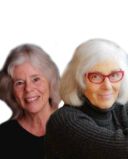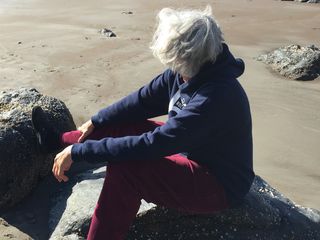
Aging
Decisions, Decisions, Decisions
Preparing a will: a way to model conscious aging for our middle aged daughters.
Posted January 11, 2018

As aging women, the decisions we need to make about the closing down of our lives are both specific and yet filled with bewildering ambiguity. What are we leaving behind? Who inherits the artifacts that represent our lives? How and why have they been chosen?
When my father died, he left the money that had been accumulated to my mother. That was common then, and undoubtedly still is. But he didn’t leave me anything. I was a grown woman, in my forties, but I wanted something. His Masonic ring. His wristwatch. The ice skates he wore when we used to go to the rink on Sunday afternoons. I know I could have asked my mother for those objects and she would have happily given them to me. But I wanted him to be thinking about me as he made his final decisions. I wanted him to honor the unique 'us-ness' of our relationship. It’s not just a home and money that is left when a parent dies. It’s an acknowledgment of the memories, the history, the sense of continuity that death unearths and requires.
I have walls of books that have accompanied my life. They are not books that my daughters will ever want to read. My furniture is not to their taste and in any case, their homes are already furnished. My mother’s silver bell, sentimental only to me, has to be disposed of. And my journals. Do I want my daughters to read them? Do I want to be known in the private recesses of my life? What is it that each of my daughters would most cherish? I need to be sure that she knows it is in her name.
Financially I will have an easier time than many women I know. Whatever little bit of money will remain after my death will be split equally. But what of women who have one successful adult child and another struggling and probably unable to ever fully provide for themselves? What if both of them are financially stable, but one of the grandchildren is a special needs child? What if you are very close to one and estranged from another?
How do women make their way through the necessary thicket of decisions before they are made for us? How do we identify the choices that reflect our deepest values? Do we decide upon an equal division of assets? Do we create our division by need? Do we determine based on the quality of the relationship we have with each of our children? Or perhaps our values lead us to leave all or a part of our resources to a cultural or religious or political organization? How do we imagine our children will feel about that sort of resolution?
In interviews for It Never Ends: Mothering Middle-Aged Women, mothers in their 70s had many questions and very few clear answers. Women understand that making decisions about the disposition of money, the chipped bowl in which thousands of cookies were mixed, photo albums of the baby years and all the objects of a shared daily life are just a stand-in for the inevitable fact that they are approaching the completion of their lives and want those objects to mark the fact that they were here and will be remembered.
Yet the task of identifying and expressing our personal core values through which we make these determinations is another in the multiple forms we continue to mother. How we engage this difficult, painful and complex set of questions and choices may involve conversations with your daughter, or it may be a private more interior process. But however we navigate this time, our daughters are watching. We are modeling a way to incorporate our beliefs in our end of life planning that will confront them when they too are aging and facing these questions.
I want my daughters to witness their mother moving toward the end of her life with the awareness that these years are as much a life stage as was adolescence and menopause, requiring the sometimes painful assessment of the choices I’ve made along the way—choices that have marked and shaped my life, defined who I have become, and how I have lived. I expect my experience will live on in their memories long after I’m gone and help to guide their own aging years. I have been a mother long enough to know that the words I say will matter very much less than the ways they watch me live the years ahead. Mothering never ends.

